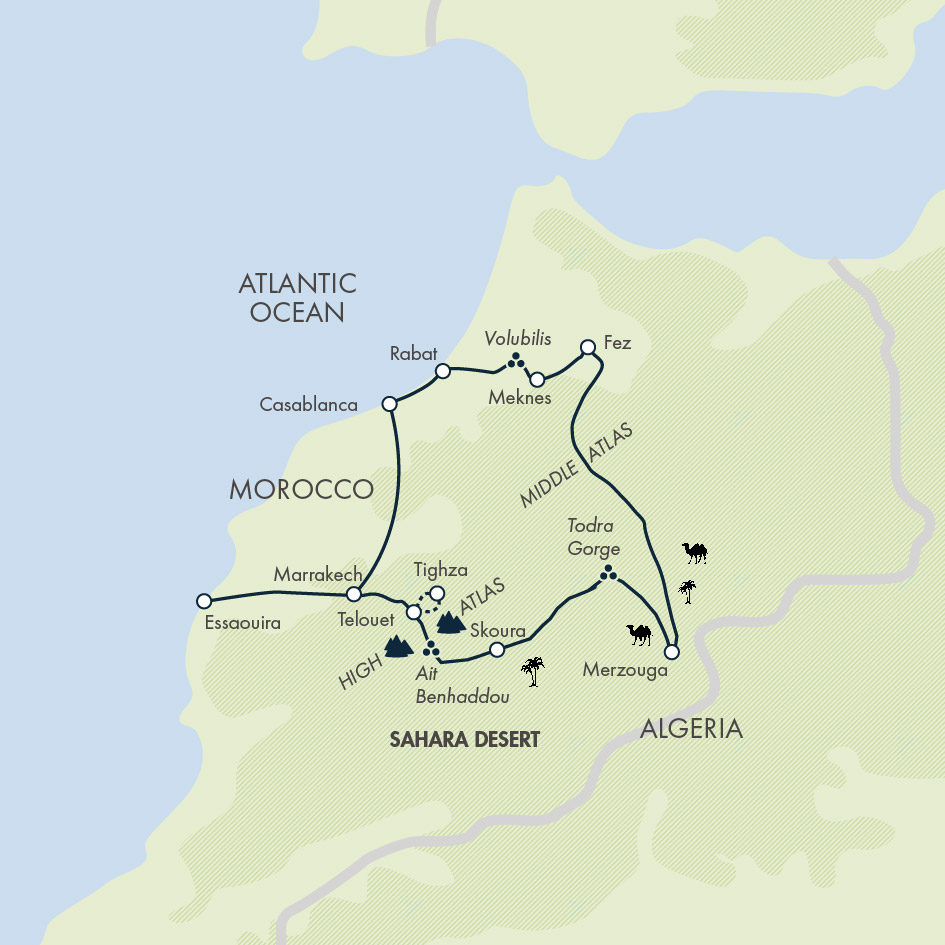- Key Info
- Overview
- Photos
- Dates

- Discover all four Imperial Cities: Rabat, Meknes, Fez, and Marrakech.
- Journey through the Sahara by camel and stay in a traditional desert camp.
- Explore the grand ksar of Ait Benhaddou, a World Heritage site.
- Visit Tighza, a remote Amazigh village that has welcomed our groups for years.
- Relax in laid-back Essaouira, an old Portuguese fishing port on the Atlantic.
- Walk among the dunes of the Sahara Desert and enjoy a sunset camel trek.
- Experience the vibrant atmosphere of Djemaa el Fna square in Marrakech.
We use a variety of accommodation throughout this tour, spending time in hotels, an auberge (inn), Sahara camp, lodge and riad. The accommodations typically used are on the day-to-day itinerary. However, below are some of the places we stay.
Rabat: Hotel Bouregreg (night 2)
Right next to Rabat medina, this 69-room hotel is well placed for our adventures. Popular nearby stops include Rabat Beach (Plage de Rabat), Hassan Tower and the Kasbah of the Udayas. The hotel also has two restaurants, one serving traditional Moroccan cuisine, the other serving international fare, plus a piano bar.
Sahara: Camp Caravane (night 6)
Our night in the Sahara is one you’re unlikely to forget. We stay in a desert camp, where we enjoy a homemade meal. Spend the rest of the evening stargazing and chatting around the campfire.
Essaouira: Mechouar Plaza (nights 11-12)
In Essaouira medina, the 20-room Mechouar Plaza has an ideal address. It’s decorated with exposed brick throughout and has a bar and restaurant serving Moroccan and international cuisine. For some departures, we stay at the Riad Dar El Qdima or similar.
Worth knowing
You can request a single room on this trip subject to availability. The single supplement applies to hotel nights only and therefore does not cover any nights in the mountains, desert or Sahara camp.
Morocco is not set up for colder temperatures and so there may not be heaters available at the hotels. Of course, you can ask for more blankets.
In the Sahara camp, we typically stay in two-person tents; however, if the campsite is full, we use four-person tents.